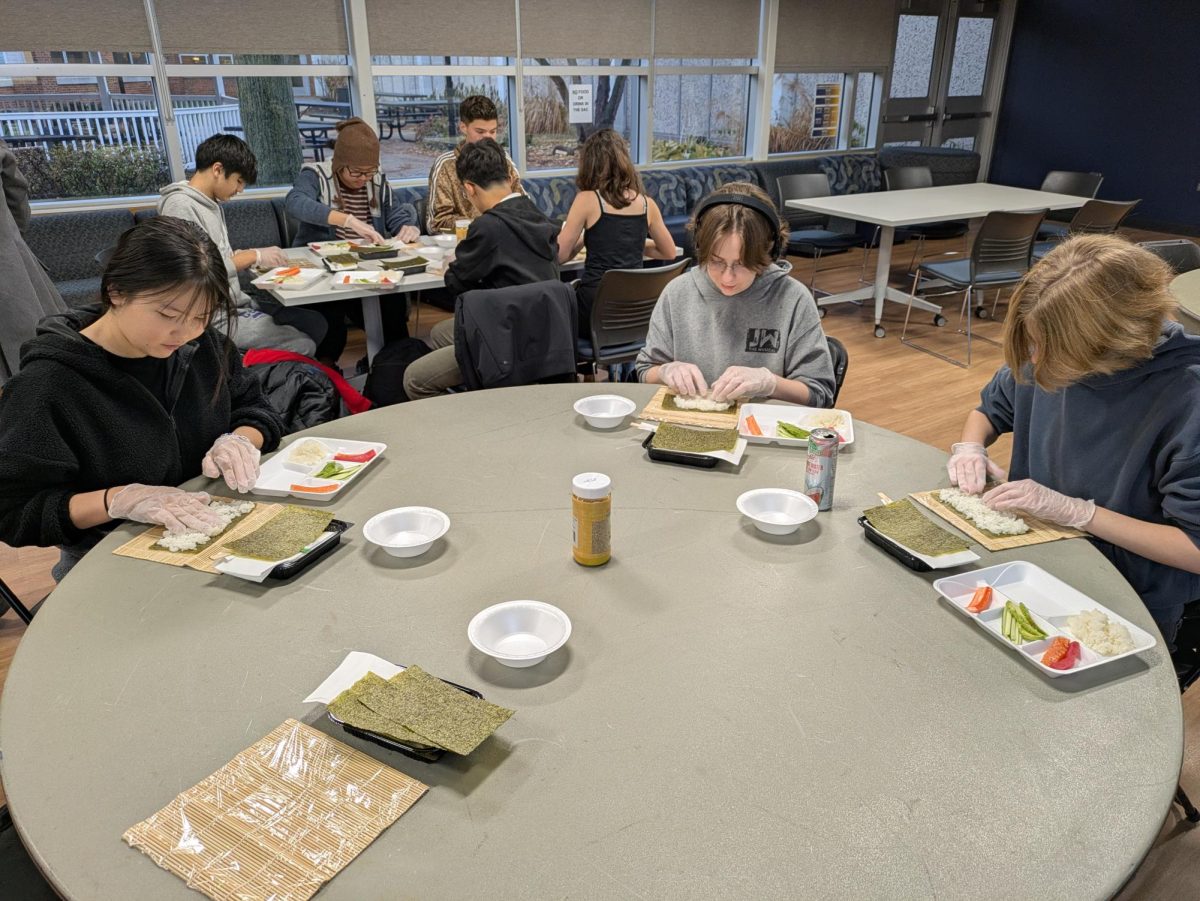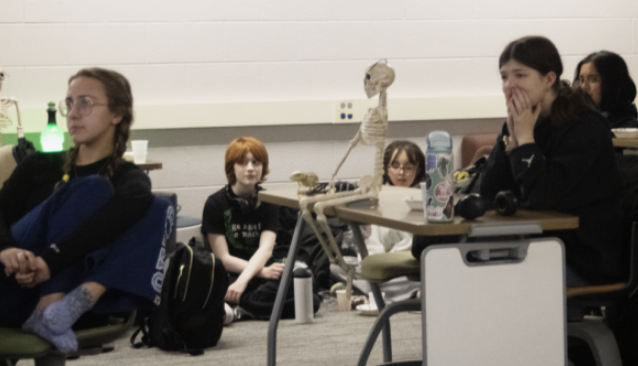A woman is pregnant but has no money and no one to help her. She wants to keep the child but knows that she cannot give him/her the best opportunities. Another woman is pregnant, but she is hardly a woman. She is 16 and feels she is unable to properly raise a child.
Not every parent is able to keep his or her child. Some are financially unstable and others are simply not ready. Adoption is an alternative process some parents choose over keeping their children in these situations. This affects some South students in different ways.
For sophomore Will Neely, being adopted is not something that ever really affected his life.
“I accept that the parents that I’m living with now are my parents because they brought me up since I was a baby,” Will said.
Will’s older sister, senior Emma Neely, was adopted as well. According to both of them, they grew up knowing about their adoption and are very glad.
“It’s not really something [our parents] would want to keep a secret,” Emma said. “[…] But if they didn’t tell me and then randomly told me I would be questioning myself because I know some people that have been adopted and they have identity problems.”
According to Emma, she and Will were adopted from different families and they were both closed adoptions. This means that all information is concealed so they cannot contact their birth parents until they are 18 years old or if they have court orders.
Junior Ally Nathan’s adoption was also closed. According to Nathan, she really wants to find her birth parents.
“Even if it’s just once in my life, I just want to be like, ‘Mom, tell me everything’,” Nathan said.
Similarly, senior Emily Dermer wanted to meet her birth parents, but she received news this summer that they are no longer living.
“It was really shocking,” Dermer said. “My mom wasn’t really supposed to tell me, it just kind of slipped out when we were at the doctor’s office. It threw me back and it took me awhile for it to actually sink in, but it was really sad.”
Although Dermer desired to meet her birth parents, she has learned to deal with the reality that she won’t be able to now.
Will, however, said he has little desire to meet his birth parents.
“There’s the whole nature versus nurture thing and how, because I was brought up by my parents, I’d be more closely related to them than my birth parents,” Will said.
Emma and Will’s mother decided to adopt because of medical reasons, according to Emma.
“My [adoptive] mom actually, when she was 16 years old, was [in and out of] the hospital because [something was wrong] where she couldn’t have kids,” Emma said.
According to Emma, she was delivered to her adoptive parents by the adoption agency when she was a couple weeks old. Will, however, spent about ten days with foster parents prior to being officially adopted by his parents. Dermer, adopted when she was one week old, has always been aware of the fact that she was adopted.
“I always kind of [grew] up knowing,” Dermer said. “I don’t really remember a time where my parents told me. It’s just kind of always been with me.”
Nathan also cannot recall a moment when her parents told her she was adopted but knows her parents decided to adopt when her mom was trying to get pregnant.
“[My adoptive mother’s pregnancy] was unsuccessful and [my adoptive parents] really wanted a child, so they reached out to an adoption agency and they found a family who they had a connection with,” Nathan said.
According to Nathan, she does not know much about her birth parents, but knows they gave her up for adoption for the right reasons.
“It’s not like my biological parents didn’t want me,” Nathan said. “It’s just that they were too poor and they couldn’t afford having another child because my biological mom’s husband left in the middle of her pregnancy.”
Both Emma and Nathan experienced difficult situations with bullies when they were young after students found out they were adopted.
According to Emma, an event in second grade was the first time that she ever really thought about being adopted.
“He found out that I was adopted, and I think we got in a fight or something, but I remember he made fun of me [for it],” Emma said.
Students in Nathan’s class bullied her while her mother faced challenges with other parents who criticized her for telling Nathan she was adopted at a young age.
“One of the kids from my class went home and told their parents [that I was adopted],”Nathan said. “Those parents called my parents […] outraged that my parents told me that I was adopted. All the kids would bully me for that, […] and I just never understood it.”
Nathan explained that she still has days when she feels embarrassed about being adopted.
“Everyone has those days where they feel unwanted, but if I could [share my adoption story and] tell those kids who are embarrassed, […] I would just tell them that there’s nothing to be ashamed of,” Nathan said.
According to Emma, she feels that there is something special about being adopted because of the process.
“It’s not like you put in a request to have a baby,” Emma said. “You have to apply to certain parents […] through an agency. My parents applied for each of us.”
Despite being adopted, Emma and Will share common interests with their birth parents.
“My [adoptive] mom told me that my [biological] parents were both musicians, and I am now involved in music and that’s something I’ve always been interested in, so it’s sort of by nature,” Emma said.
According to Emma, although she is fascinated by this coincidence, she is hesitant about meeting her biological parents in the future.
“I’m not sure if I would necessarily go hop on a plane without thinking about it at all,” Emma said.
Nathan explained how being adopted is not a huge deal, but something that should be embraced.
“I don’t care where I come from,” Nathan said. “I’m Ally, it shouldn’t matter.”
Will explained that his and Emma’s adoption has never affected their relationship with their parents and is not a huge deal in their lives.
“We both know that our [adoptive] parents are our parents now, and that’s all that matters,” Will said.
According to Nathan, she agrees that being adopted does not change her relationship with her adoptive parents or who she is.
“At the end of the day it doesn’t matter who raises you,” Nathan said. “You have to love them because they’re the ones that give you all these opportunities.”







